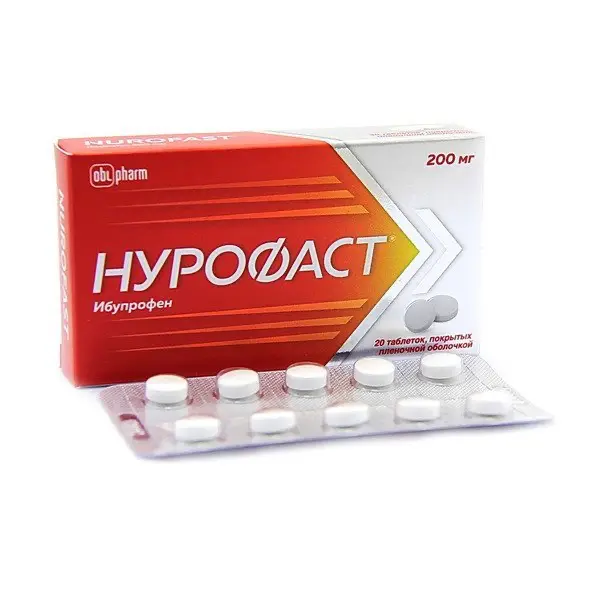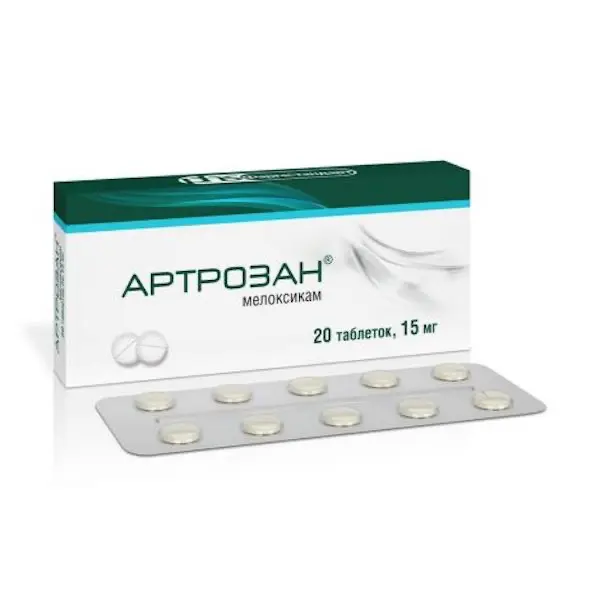Description
Nurofast Pharmacodynamics
The mechanism of action of ibuprofen, a derivative of propionic acid from the group of non-steroidal anti-inflammatory drugs (NSAIDs), is due to the inhibition of the synthesis of prostaglandins – mediators of pain, inflammation and hyperthermia. Indiscriminately blocks cyclooxygenase 1 (COX-1) and cyclooxygenase 2 (COX-2), thereby inhibiting the synthesis of prostaglandins. It has a fast directed action against pain (analgesic), antipyretic and anti-inflammatory effect. In addition, ibuprofen reversibly inhibits platelet aggregation. The analgesic effect of the drug lasts up to 8 hours.
Indications
Nurofast® is used for headache, migraine, toothache, painful menstruation, neuralgia, backache, muscle pain, rheumatic pain and joint pain; as well as in case of fever of flu and colds.
Contraindications
– Hypersensitivity to ibuprofen or any of the components that make up the drug.
– Complete or incomplete combination of bronchial asthma, recurrent polyposis of the nose and sinuses and intolerance to acetylsalicylic acid or other NSAIDs (including history).
– Ulcerative diseases of the gastrointestinal tract (including gastric and duodenal ulcers, Crohn’s disease, ulcerative colitis) or ulcer bleeding in the active phase or in the anamnesis (two or more confirmed episodes of ulcer disease or ulcer bleeding).
– Bleeding or perforation of a gastrointestinal ulcer in the history, provoked by the use of NSAIDs.
– Severe heart failure (NYHA class IV).
– Severe hepatic insufficiency or active liver disease.
– Severe renal insufficiency (creatinine clearance
< 30 ml/min), confirmed hyperkalemia.
– Decompensated heart failure; period after coronary artery bypass grafting.
– Cerebrovascular or other bleeding.
– Hemophilia and other disorders of blood clotting (including hypocoagulation), hemorrhagic diathesis.
– Pregnancy (III trimester).
– Childhood under 6 years of age.
Dosage and administration
- For oral administration. Patients with hypersensitivity stomach is recommended to take the drug with food.
- Only for short-term use. Read the instructions carefully before taking the drug.
- Adults and children over 12 years of age: Orally take 1 tablet (200 mg) up to 3-4 times a day. The tablets should be washed down with water. To achieve a more rapid therapeutic effect in adults, the dose may be increased to 2 tablets (400 mg) up to 3 times a day.
- Children aged 6 to 12 years: 1 tablet (200 mg) up to 3 to 4 times a day; the drug may be taken only if the body weight of the child is more than 20 kg.
- The interval between the intake of tablets should be at least 6 hours.
- Maximum daily dose for adults is 1200 mg (6 tablets).
- Maximum daily dose for children from 6 to 18 years: 800 mg (4 tablets).
- If symptoms persist or intensify while taking the drug for 2-3 days, it is necessary to stop treatment and consult a physician.





